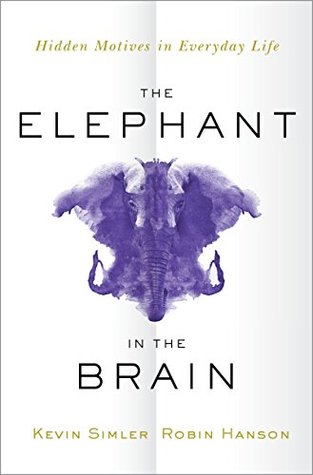More on this book
Community
Kindle Notes & Highlights
by
Kevin Simler
Read between
March 12 - March 21, 2021
The waste is important. It’s only by doing something that serves no concrete survival function that artists are able to advertise their survival surplus.
An underground bunker stocked with food, guns, and ammo may have been expensive and difficult to build (especially if it was built by hand), and it may well reflect the skills and resources of its maker. But it’s not attractive in the same way art is. The bunker reflects a kind of desperation of an animal worried about its survival, rather than the easy assurance of an animal with more resources than it knows what to do with.
It can even be embarrassing to demonstrate poor aesthetic judgment.
People are willing to help, but the amount they’re willing to help doesn’t scale in proportion to how much impact their contributions will make.
When we evaluate charity-related behaviors, gross inefficiencies don’t seem to bother us.
In both cases, students sacrifice useful learning opportunities for an easier path to a degree. In fact, if we gave students a straight choice between getting an education without a degree, or a degree without an education, most would pick the degree—which seems odd if they’re going to school mainly to learn.
Beyond intrinsic personal enjoyment, college may also serve as conspicuous consumption—a way to signal your family’s wealth and social class (in addition to your own qualities as a worker).
the conspicuous caring hypothesis.
What, on Darwin’s green Earth, is going on here?
This is the religious elephant in the brain: We don’t worship simply because we believe. Instead, we worship (and believe) because it helps us as social creatures.
Historical religions, such as those of the ancient Greeks and Romans, were less concerned with doctrinal propositions like, “Zeus rules the gods on Mount Olympus,” and more concerned with ritual observance, like coming out to celebrate on public holidays.
Other religions, like Hinduism, Judaism, and Shintoism, are as much ethnicities and cultural traditions as they are sets of beliefs about supernatural entities, and people can be wholly accepted as members of the religion without believing in the literal existence of the gods in question.
Communities provide benefits to the people living in them; otherwise, everyone would just live on their own.
Friends and family make sacrifices for each other all the time. But we can’t sacrifice for every person we might meet for an ephemeral, one-off interaction.
sermons generate common knowledge of the community’s norms.
Thus, by attending a sermon, you’re learning not just what “God” or the preacher thinks, but also what the rest of your congregation is willing to accept.
Real voters, however, seem apathetic about practical details, and prefer instead to focus on values and ideals.
While political scientists are mostly agnostic about why people like to express themselves at the voting booth, some treat expressive voting as an act of consumption—something we do in order to feel good, without concern for external benefits.
Self-deception allows us to act selfishly without having to appear quite so selfish in front of others.
When meetings at work seem like an unnecessary waste of time, such waste may in fact be the point; costly rituals can serve to keep a team cohesive or help anxious leaders cement control over their subordinates.
We shouldn’t let other people make us feel inferior—at least, not without our consent.
Of course, we should realize that, at any one time, we have a limited budget for self-improvement.
Please note, however, that other people may care much less about our motives and more about the consequences of our actions. Yes, we might really work hard to become a great scientist or surgeon for personal glory (rather than for the greater good), but if a selfish motive is what it takes to create a great scientist or surgeon, the rest of the world may be OK with that.
In the end, our motives were less important than what we managed to achieve by them. We may be competitive social animals, self-interested and self-deceived, but we cooperated our way to the god-damned moon.


